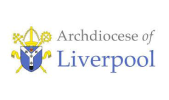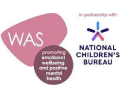Spanish



The intent of our MFL curriculum is for the children to develop a love for learning a new language. As they go through school and through their units of work, they will begin to make connections to their prior learning and as a result, grow in confidence at both speaking and understanding the language.
Phonics, vocabulary and grammar are taught gradually and recapped constantly.
Ensuring that MFL is accessible for all of our students is of great importance and so our lessons are delivered in fun, diverse ways which allows to repetition, games, roleplay and visual cues.
It is also our intent that through this subject our children are exposed to a new culture. Through the curriculum, they will recognise how many things differ between countries, not just language but traditions, climate and food.
In Year 3 our children are introduced the subject through a number of different activities to improve cultural awareness of Spain and Spanish speaking countries. Children will be expected to
locate Spain and other Spanish speaking countries on a map. In Year 4 they learn how grammar differs for example, the dates do not have capital letters. In Year 5 they will explore different Spanish cuisines during their café topic and cities within Spain through their weather unit. In Year 6 they study Spanish artists.
Through the delivery of MFL, we aim to improve pupils’ skills in these four areas:
Listening and responding
Speaking
Reading and responding
Writing
Our lessons are delivered through a scheme called Language Angels. The units are planned based on the level the year groups are at in their language journey. All materials at Language Angels have been written around the 12 PoS attainment targets and are fully aligned with the NC. We follow a ‘step-by-step approach’. The three ‘pillars’ of language learning (phonics, grammar and vocabulary) are all weavon into the scheme and, as pupils progress through the units and teaching types, previous language is recycled, revisited and consolidated. Any new language is introduced gradually and
becomes more complex and sophisticated as pupils move from Early Language to Intermediate to Progressive Units. Pupils follow a programme that has ‘language learning steppingstones’ built into the resources. They frequentyly revisit and use prior learning in all Spanish lessons.







